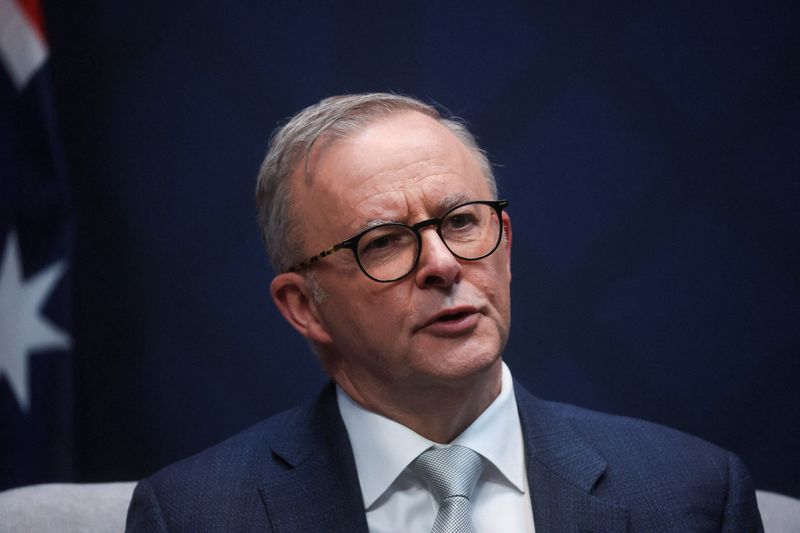SYDNEY (Reuters) - Prime Minister Anthony Albanese said on Saturday he was pleased to see inflation retreating in Australia, but cautioned that cost of living pressures remained nationwide.
Australian inflation slowed to an eight-month low in February, data out this week showed, due partly to a fall in holiday travel and accommodation prices, boosting the case for the Reserve Bank of Australia (RBA) to pause its rate-hike cycle when it meets on Tuesday.
"It was pleasing the results, the trend going in the right direction this week with the figures but we know cost of living pressures are there," Albanese told reporters in Melbourne.
Inflation remained "a real issue" and "a global phenomenon", he said, campaigning alongside the Labor Party's candidate for the federal seat of Aston, in Victoria state, where a by-election was taking place.
Stubborn inflation has posed a challenge for the RBA, which last month lifted its cash rate to its highest level in more than a decade.
Amid persistent inflation, cost of living has become a key political issue, and was a focus of last weekend's election in New South Wales, the country's most populous state. It was won by Albanese's state Labor counterpart Chris Minns who campaigned in part on providing cost of living relief.
The latest Australian Bureau of Statistics data, released on Wednesday, showed the monthly consumer price index (CPI) rose 6.8% in the year to February, the slowest rise since June. That compared with 7.4% the previous month and market forecasts of 7.1%.
Investors, in the wake of the data, cut bets of a 25-basis point hike by the RBA at the next policy meeting to just a 5% chance, compared with 15% before.
RBA Governor Philip Lowe has previously said the central bank was closer to pausing its rate hikes as monetary policy was now in restrictive territory, and suggested a halt could come as soon as April.
